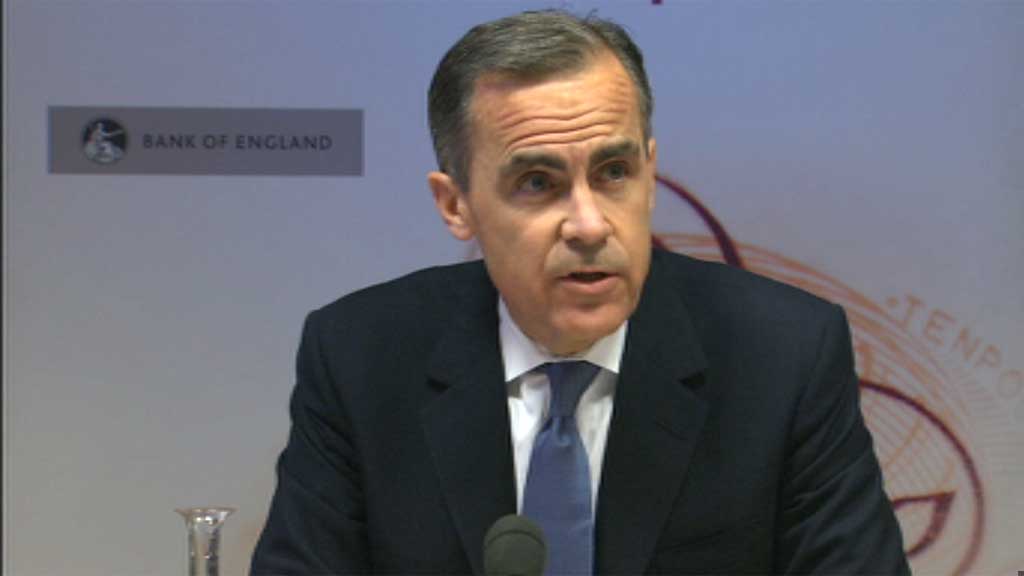Interest rates: Carney rips up ‘forward guidance’ policy
Bank of England Governor Mark Carney ditches his flagship interest rates policy, but says the cost of borrowing is unlikely to rise in the near future despite falling unemployment.

When he became governor in the summer of 2013, Mr Carney issued so-called “forward guidance” on when bank base rate would rise from its historic low of 0.5 per cent.
He said unemployment would have to fall to 7 per cent before this happened, a scenario that was considered years away.
As the economy recovers, unemployment has fallen faster than expected. The latest official figures from January show it currently stands at 7.1 per cent, but it is widely believed that the 7 per cent threshold has already been reached.
Rapidly declining unemployment has led to speculation that rates could go up in 2014, but in an overhaul of his previous “forward guidance”, the governor said several factors would be taken into account before a rise, with rates remaining on hold until the economy recovers further.
In future, under a more complicated formula, the amount of spare capacity in the economy will be considered before an increase.
Steady as she goes
Mark Carney said there was “scope” for the cost of borrowing to remain at 0.5 per cent, with gradual rises when the economy returns to normal.
“If and when the time comes that the economy can sustain higher interest rates, bank rate is expected to rise only gradually. For a sustained and balanced recovery, the degree of stimulus will need to remain exceptional for some time.”
The bank upgraded its growth forecast for the economy in 2014 from 2.8 to 3.4 per cent, and Mr Carney admitted the recovery had been stronger than expected.
‘Forward guidance is working’
He said “forward guidance” was working because it had given ressurance to homeowners and businesses. “The first phase of guidance gave businesses confidence that bank rate would not be raised at least until jobs, incomes and spending were growing at sustainable rates,” he said.
“Forward guidance is working. Expected interest rates have remained low even as the economy has recovered strongly, uncertainty about interest rates has fallen, and most importantly, UK businesses have understood the message.”
Mr Carney was cautious about Britain’s “unbalanced” recovery, which had been driven by households saving less and spending more.
“The recovery as yet is neither balanced nor sustainable. A few quarters of above trend growth driven by household spending are a good start, but they aren’t sufficient for sustained momentum.”
Full transcript: Mark Carney talks to Jon Snow
-
Latest news
-
As India goes to the polls in the world’s largest election – what do British-Indians think?6m

-
Tees Valley: Meet the candidates in one of the biggest contests coming up in May’s local elections4m

-
Keir Starmer says public sector reform will be a struggle7m

-
Nicola Sturgeon’s husband Peter Murrell charged with embezzlement of funds from SNP1m

-
Ukraine might finally get $60billion in American weapons and assistance to defend against Russia3m

-




